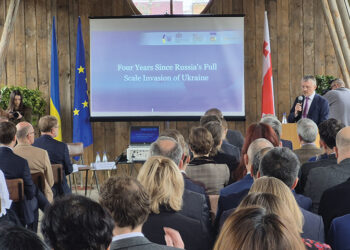Georgia’s “Transparency of Foreign Influence” law does not comply with democratic standards and human rights. The OSCE Office for Democratic Institutions and Human Rights (OSCE/ODIHR) also writes about this in its legal analysis.
Based on the analysis, the law adopted in Georgia, which defines civil society and media as “organizations carrying the interests of foreign powers”, only for funding received from abroad, does not comply with the strict requirements mentioned in the international law on human rights.
ODIHR’s analysis also highlights important differences between the law adopted in Georgia and the laws in the US (FARA) and Australia, which are fundamentally different in purpose and scope.
The analysis states that existing laws in the US and Australia aim to publicly register private companies and non-profit organizations that engage in advocacy or lobbying on behalf of foreign governments, and that they do not designate civil society or the media as “foreign representatives” simply because they receive funding from abroad.
ODIHR calls on Georgian officials to recall this law and take steps to bring the legislation into line with international standards.
The analysis notes that there are a number of obligations that may be imposed on civil society organizations that may be justified from a human rights perspective, although they should not specifically target the civil society sector and should not make the assumption that all foreign-funded civil society organizations serve the interests of foreign powers.














